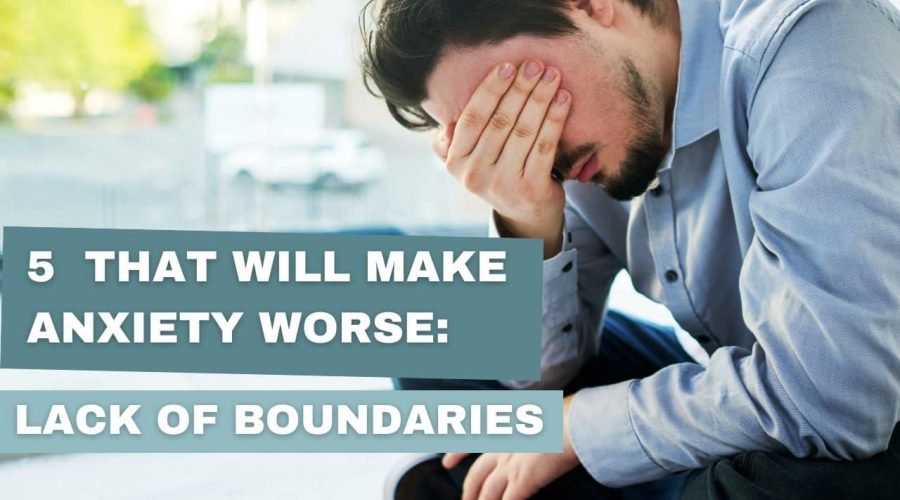For years, I battled severe anxiety, struggling to find relief and effective solutions. I was seeking help from health care practitioners, but no one addressed the impact of lifestyle choices on my anxiety. Instead, I received messages suggesting that my brain was “broken” or that past trauma would forever hold me back. The truth is, I found my way to recovery by understanding how the mind works and embracing real solutions. This is why I created this blog – to help you realize that you can overcome anxiety without years of struggle. In this article, we’ll explore five common habits that may be making your anxiety worse and preventing your recovery.
In our fast-paced and interconnected world, boundaries seem to be fading away, leading to a significant rise in anxiety-related issues. Boundaries are the invisible but essential lines that define our emotional and physical limits, safeguarding our well-being and personal space. When these boundaries are compromised or non-existent, the effects on anxiety can be profound and detrimental.
Here are some boundaries you should have in place in your life to protect yourself. Your brain needs to know that it can trust you to keep yourself safe!
- Emotional Boundaries – This is especially important for those who consider themselves empaths or are the highly compassionate types. It is important that you distinguish between your own feelings and the feelings of those around you. Equally as important is for you to make sure you are not giving others the power to direct your emotional world. We often say things like… He really made me mad! OR She is really upsetting me! But giving others the power to upset you is disempowering yourself. You can learn to take personal responsibility for your own feelings and emotions. Often this involves healing the wounds of the past that keep getting re-triggered. See my video How To Stop Being So Easily Triggered for more help with this.
- Time Boundaries: Having a lack of boundaries often leads people to overcommit themselves, saying yes to more than they can handle. Whether it’s at work, in social circles, or within personal relationships, the constant pressure to perform and please others can be exhausting. The weight of unrealistic expectations and the fear of disappointing others fosters anxiety, gradually pushing individuals towards burnout.
- Social Media Boundaries: In a digital age where social media blurs the lines between public and private life, maintaining personal space has become more challenging than ever. The constant influx of messages, notifications, and demands can make it difficult for individuals to disconnect and recharge. This constant intrusion can leave them feeling vulnerable and exposed, leading to heightened anxiety and a sense of being constantly “on.”
- Fear of Rejection and Abandonment:. Do you catch yourself caught up in people-pleasing behaviors? Do you avoid expressing your needs and desires? Or tolerate mistreatment from others? This fear stems from a deep-seated belief that setting boundaries will lead to rejection. But the right kinds of people do not reject you for expressing your emotional needs, nor do they mistreat you. As I mentioned before, allowing toxic people to terrorize you slows your recovery from anxiety.
- Self-Care Boundaries: Without proper boundaries, self-care often takes a backseat. Constantly prioritizing others’ needs and neglecting one’s own can lead to physical and emotional exhaustion, heightening anxiety levels. Self-care is crucial for managing stress and anxiety, and without it, the cycle of anxiety only intensifies.
The #4 thing that makes your Anxiety worst is… Sugar and Processed Food
